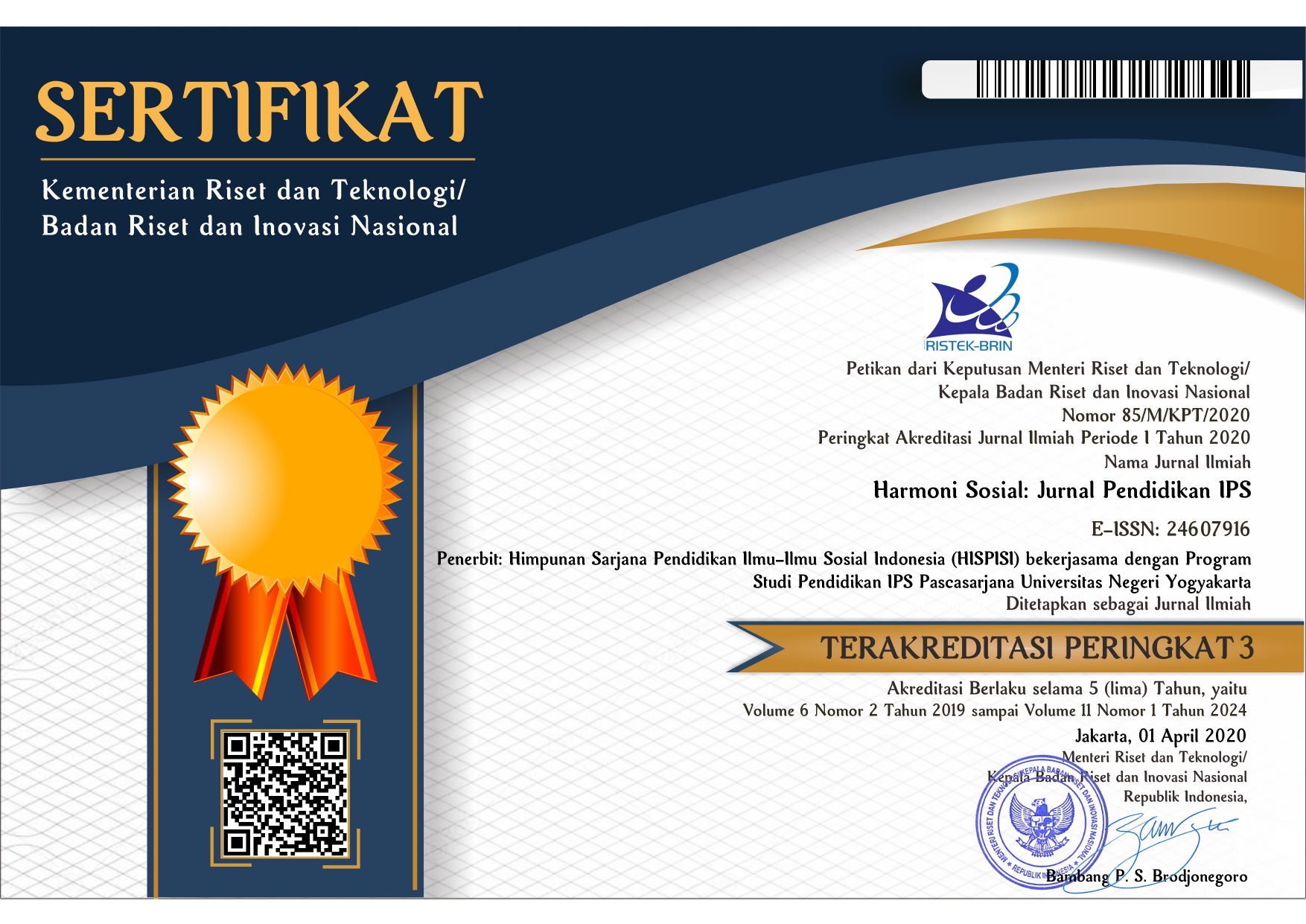PENGARUH METODE PEMBELAJARAN DAN GAYA BELAJAR SISWA TERHADAP HASIL BELAJAR IPS DI SMP NEGERI DI KOTA YOGYAKARTA
Abdul Gafur, Universitas Negeri Yogyakarta, Indonesia
Abstract
Kata kunci: metode, gaya belajar, hasil belajar IPS.
______________________________________________________________
THE EFFECT OF LEARNING METHOD AND LEARNING STYLE ON THE ACHIEVEMENT IN IPS OF THE STUDENTS OF JUNIOR HIGH SCHOOLS IN YOGYAKARTA
Abstract This research aims to revealthe effect of: (1) teaching methods on IPS learning outcomes, (2) the influence of learning styles on IPS learning outcomes, (3) the methods and learning styles on IPS learning outcomes. This research was a quasi experiment using the 2x2 factorial design. This research was conducted at SMP Negeri 15 Yogyakarta. The sample was VII B, VII E, VII H, and VII J classes, which was established using the simple random sampling technique. The data collection used a test and questionnaire. The instrument validity was measured by using the product moment formula and its realiability was measured by using Cronbanch’s Alpha. The data normality was tested by using Kolmogorof-Smirnov and the homogeneity test was tested by using Levene Test. The hypothesis of this research was tested by using the two-way Anova technique at the significance level of 0,05. The result of this research shows that: (1) the achievement in IPS of the students taught using the Think Pair Share method is higher than that of those taught using the problem-based learning method; (2) the achievement of the students taught using the Think Pair Share method is higher than that of those taught using the problem-based learning method for group of visual learning style; (3) the achievement of the students taught using the Think Pair Share method is higher than that of those taught using the problem-based learning method for group of auditorial learning style; and (4) there is no interaction between teaching method and learning style in influencing students’ achievement in IPS subject matter.
Keywords:methods, learning style, IPS subject outcomes
Full Text:
PDFDOI: https://doi.org/10.21831/hsjpi.v2i1.4622
Refbacks
- There are currently no refbacks.
Copyright (c) 2015 Harmoni Sosial: Jurnal Pendidikan IPS

This work is licensed under a Creative Commons Attribution-ShareAlike 4.0 International License.
Our journal indexed by:
Printed ISSN (p-ISSN): 2356-1807 | Online ISSN (e-ISSN): 2460-7916
 This work is licensed under a Creative Commons Attribution-ShareAlike 4.0
This work is licensed under a Creative Commons Attribution-ShareAlike 4.0


















